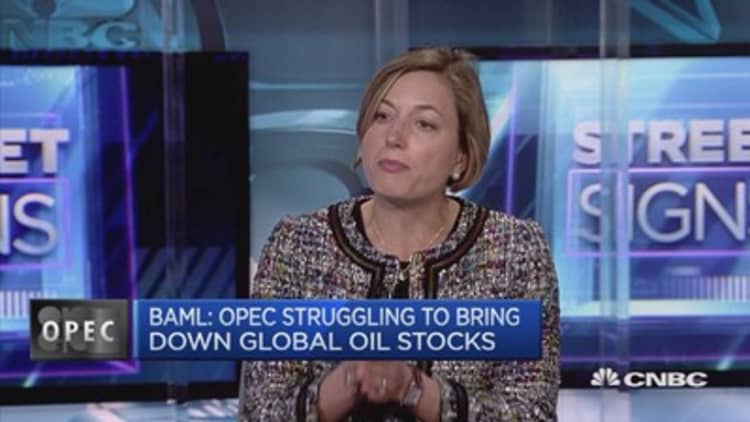Libya's state oil company moved on Tuesday toward resolving a dispute that could help the country's crude output soar. But a regional crisis over Qatar has spilled over into Libya, putting at risk political reconciliation between the nation's rival factions and a tentative rebound in its oil production.
Libya's National Oil Corporation (NOC) and German oil and gas company Wintershall have agreed to an interim arrangement to resume production in Libya, the NOC said on Tuesday, a step forward in a dispute that was shutting in up to 160,000 barrels per day (bpd) of output.
NOC said the deal would allow production to begin immediately in Wintershall's concession areas in eastern Libya.
It said it was targeting an increase in national production to 1 million barrels per day (bpd) by the end of July from 830,000 bpd currently, following restarts at Wintershall's fields and other fields where output has been blocked because of pipeline connections.
The agreement "provides that during this interim arrangement, the parties will attempt to resolve their dispute regarding the legal framework governing the petroleum operations," the NOC said in a statement.
The announcement came after OPEC said its own output rose by 336,000 bpd in May to 32.14 million bpd led by Nigeria and Libya, two members exempt from the supply reduction deal. OPEC on Tuesday said a long-awaited rebalancing of the global oil market was under way at a "slower pace."

Also on Tuesday, NOC warned authorities based in the east of the country not to use a rift between several Arab states and Qatar "as a pretext for exporting oil illegally".
The statement came after authorities in eastern Libya threatened to block operations by Glencore, in which Qatar Holding owns a stake and which has a contract with the NOC to lift oil from the eastern port of Marsa al-Hariga.
Any such move would put at risk a partial recovery in Libyan oil output, which recently rose above 800,000 barrels per day (bpd) for the first time since 2014.
Libya has been split for three years between competing governments and armed factions based in Tripoli and the east.
Factions based in the east have repeatedly tried to sell oil independently through a parallel institution in Benghazi. They have been prevented from doing so by U.N. Security Council resolutions that recognise the NOC in Tripoli as the sole legitimate oil exporter.
Some groups have also blockaded ports and other oil facilities.
Despite past threats from eastern officials to disrupt production, Khalifa Haftar's Libyan National Army (LNA), which is aligned with the eastern government and parliament, has kept major ports open in recent months for the Tripoli NOC.

But after Arab states including Egypt and the United Arab Emirates cut ties with Qatar last week, east Libyan factions have stepped up their rhetoric against opponents in the west. The eastern camp has long been backed by Egypt and the UAE, while accusing Qatar of supporting Islamist-leaning rivals based in west Libya.
A statement issued on Sunday by the eastern government called for "immediate measures by all oil companies to stop any kind of dealing" with Glencore.
Days earlier, the eastern parliament said the NOC "had to review and cancel its contracts with some companies wholly or partly owned by the state of Qatar and the leaders of the global organization of the Muslim Brotherhood".
Glencore, which since 2015 has been the only company able to buy Sarir and Messla crude output directly from the NOC, declined to comment.
NOC Chairman Mustafa Sanalla said he had warned the head of the eastern government, Abdullah al-Thinni, against any new port blockades.
"We respect the Libyan National Army General Command for its responsible opposition to port blockades," Sanalla wrote, according to the NOC statement. "I hope you will take notice of their wise position on this matter."
He said contracts signed by Naji al-Maghrabi, who Thinni appointed to head the parallel NOC, "were with companies NOC would not accept as counterparties, and could cost Libya billions of dollars in lost revenue if they were ever implemented".
Maghrabi told Reuters that any contracts signed "were marketing contracts only", and that the eastern government and NOC Benghazi were not demanding any halt to exports.
— CNBC's Tom DiChristopher contributed to this story.

